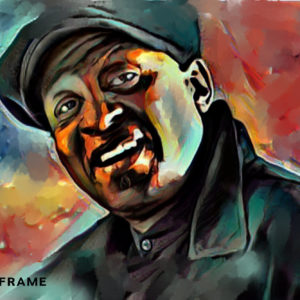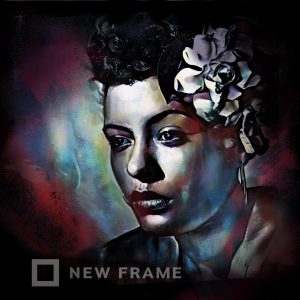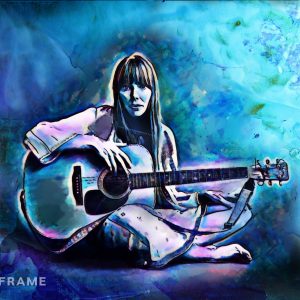Anarchic Lee ‘Scratch’ Perry revolutionised reggae
The astonishingly creative and visionary producer and singer shaped the musical landscape well beyond Jamaica.
Author:
3 September 2021

“And the temple of God which is in heaven was opened; and the ark of His covenant appeared in His temple, and there were flashes of lightning and sounds and peals of thunder and an earthquake and a great hailstorm.” – Revelation 11:19
“I am a prince and the music is the king and the music is my father who art in heaven, hallowed be his name. So the music lives on.” – Lee “Scratch” Perry
Lee “Scratch” Perry, who died at the age of 85 in a hospital in Lucea, Jamaica, on Sunday 29 August, was a musical genius. Often misunderstood and always impishly provocative, he was diminutive in stature but larger than life in terms of his influence.
He was also a ground-breaking sonic provocateur who, in a career spanning six decades, drove many of the major developments in Jamaican music and inspired several musical techniques and innovations in and beyond Jamaica. As novelist and journalist Hari Kunzru wrote in a Twitter tribute: “Much of our lives (whether we know it or not) are lived in sound worlds he created.”
Related article:
Perry had only returned to his homeland in January this year after three decades spent living in Switzerland. He died about 130km from his birthplace, Kendal, where he was born Rainford Hugh Perry on 20 March 1936, the third of four children. His parents, Ina Davis and Hugh Perry, were cane workers. He dropped out of school at the age of 15 and spent his days playing dominoes and enjoying some local success in dance competitions, which earned him the moniker “the neat little thing” – the first of many.
As he told his biographer, David Katz: “I wasn’t one of the working type. I loved to play games like dominoes. I never like to work, because I don’t wish no one to be a slave. I want to be worked by my mind, not work by my body.”
Perry was also a keen contributor to his own legend and would claim that he heard the sounds of stones clashing, which created thunderous voices telling him that he needed to go to the capital, Kingston, to pursue his musical ambitions. As he would throughout his life, he followed the voices in his head.
Arriving in Kingston in the early 1960s, Perry soon found himself working odd jobs for legendary producer and sound-system giant Clement “Coxsone” Dodd at Studio One, the early Jamaican hit factory. Perry quickly moved from gofer to record seller, talent scout, engineer and producer.
It was Perry who convinced Dodd to make the first recordings of The Maytals, and they became the first in a long line of Jamaican bands who would owe a part of their success to him. By this time, Perry had earned the nickname “Scratch”, after the title of a popular dance.
Rifts and rivalries
Perry’s relationship with Dodd eventually soured because, as he would later recall, Dodd “never wanted to give a country boy a chance. No way. He took my songs and gave them to [other] people … I got no credit. I got no money. I was being screwed.”
At the time, the small but highly competitive world of Jamaican music was characterised by the kind of rivalry and “diss-track” recordings that you might associate with the world of American hip-hop these days. Perry was adept at writing songs that insulted the rivals of whichever boss employed him, and throughout his own career he was never afraid to call out his enemies on recordings.
After his falling-out with Dodd, he went on to work for several rival producers, including Prince Buster and Joe Gibbs, but these relationships would similarly be marred by financial and credit disagreements and end in sometimes permanent, sometimes temporary bitter personal acrimony.
Related article:
His 1968 single, People Funny Boy, a scathing attack on Gibbs, became a top five hit in Jamaica and the United Kingdom. It laid the foundation for the move from ska and then rocksteady to reggae and allowed Perry some much sought-after financial and professional independence. This eventually led him to open his own studio in 1973 in the back of his Kingston home – the now fabled Black Ark where, over the course of the next decade, Perry would indelibly shape the musical landscapes of both Jamaica and the world at large.
Working with almost every major artist of the period, from Bob Marley and the Wailers to Max Romeo, The Heptones, The Congos and Junior Marvin, and creating a series of his own seminal solo albums, Perry enjoyed one of the most prolific and creative careers of any artist in the history of modern music.
As the self-proclaimed “upsetter” – and Perry did just that – he completely upended the idea of what was possible in a studio and used his equipment as an instrument. As journalist Vivien Goldman described in a 1976 Sounds magazine article, he would “dance with the board while he produces. Flicking switches with a twist of the hips … aware of his studio audience but [dancing] in spite, not because of them.”
As Perry put it: “The machine must be live and intelligent. Then I put my mind into the machine and the machine perform reality. Invisible thought waves – you put them into the machine by sending them through the controls.”
Mystical mood
Lloyd Bradley, author of the definitive history of reggae, Bass Culture, wrote in a tribute published in The Guardian newspaper that the Black Ark, with its rudimentary four-track recording system, allowed Perry on “his own time [to] experiment and work to realise the sounds he heard in his head, to move the music forward rather than repeat what he had done. Frequently this meant running out of tracks to record on as more and more sounds were to be added. He’d have to ‘bounce them down’ … and the resultant sound would be fuzzy and more than a little bit woozy – his famous soft and gentle vibe.”
South African reggae DJ and promoter Andy “The Admiral” Kasrils observes: “The great reggae producers of Jamaica all had their own distinctive styles. Lee Perry’s was among the most expressionistic. He created a mystical mood to the thumping sound.”
Perry told Bradley in an interview for Bass Culture that until the creation of reggae, Jamaican music was “all Kingston … Kingston, Kingston Kingston! Ska? … Rocksteady? … They were Kingston things with the same Kingston men doing the same Kingston things.”
Related mixtape:
It took a “country boy” to really revolutionise the island’s music and turn it away from an imitation of American soul and R&B into something that was truly Jamaican. As Perry saw it: “It was when country people come to town and bring with them the earth, the trees, the mountains – that’s when reggae music go back to the earth. They used to look on country men as madmen, but so what? Sometimes it takes a madman, because the madmen can’t play the same thing the same way because it don’t mean nothing to them.”
By incorporating the rhythms of his rural upbringing in the making of his music, Perry brought together the different experiences of Jamaican life. He created a sound that inspired a generation of rural-born Jamaicans to follow their big-city musical dreams and seek out the emperor of the Black Ark to help make them a reality. During the decade of his peak period of production and creativity, Perry would create magic – time and time and time again.
Laying the foundations
Perry’s own madness, addictions and paranoia led him to ultimately destroy the Black Ark by setting fire to it in 1983 and, as he told Rolling Stone magazine in 2010, purging himself of the sin that he had created. By then, he had already ensured that the sounds of Jamaican music were taking the rest of the world by storm and laying the ground for a new generation of English, African and other successful international interpretations of the genre.
He had created, along with his friend and fellow production genius Osbourne Ruddock, better known as King Tubby, the instrumental, bass-heavy, hypnotic complexities of dub that would lay the basis for the development of nearly all the genres of electronic music that we know today. He had used early sample techniques that Jamaica-born DJ Kool Herc would take with him to the United States where, together with Afrika Bambaataa, he would utilise them to give birth to hip-hop in the Bronx.
Perry had recorded with artists beyond Jamaica such as Linda and Paul McCartney and punk legends The Clash. He had also pioneered the now much abused and flippantly evoked idea of Afrofuturism through his approach and working methods. This, as Heptones leader Leroy Sibbles told Bradley, made him like “an explorer going into the future of the music and he always want to push that little bit further … Scratch could look deep, deep into a tune the way other people would just look at the surface, and reach down into it to pull things up that most people hadn’t even really noticed.”
Related article:
After leaving Jamaica for England in 1984, Perry would for many years avoid taking up his position behind the studio boards, opting instead to have others produce his still phenomenal output of recordings. He released a host of successful collaborations with artists and producers such as Adrian Sherwood, Neil “Mad Professor” Fraser, The Orb and the Beastie Boys. He would eventually return to producing and, in 2003, won a Grammy Award for his album Jamaican ET. He continued to produce albums regularly throughout the remainder of his life.
His diminutive body and distinctive shock of bright red-oil-painted hair may now have left us, but Perry’s legacy is, as producer Bill Laswell once said of dub music, “the ultimate beginning with no ending”.
Like David Bowie and Sun Ra, also singular musicians with their own sonic universes governed by their self-created and self-controlled mythologies and symbolism, Perry was, as novelist Marlon James wrote in a Facebook tribute, “never really here”. He was “on loan from a planet overrun with genius, a planet that sooner or later would demand [him] back. We were beyond lucky to have Scratch for as long as we did.”




